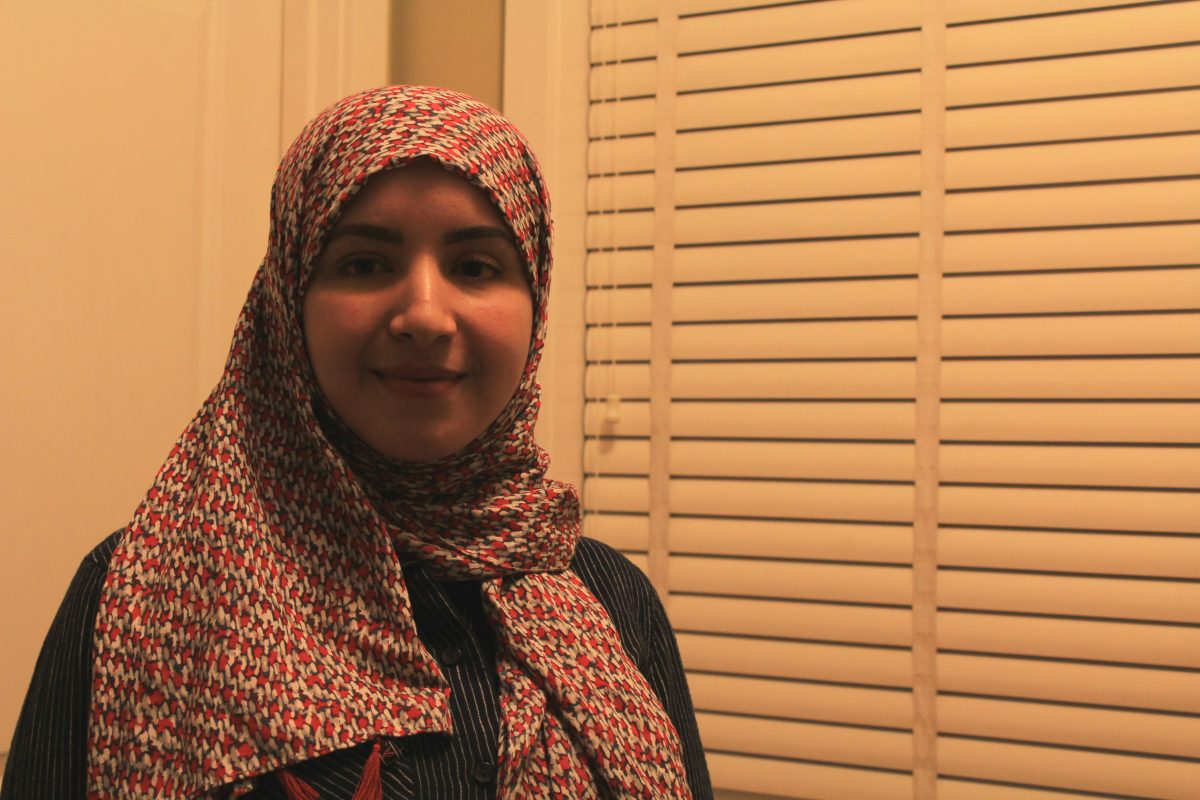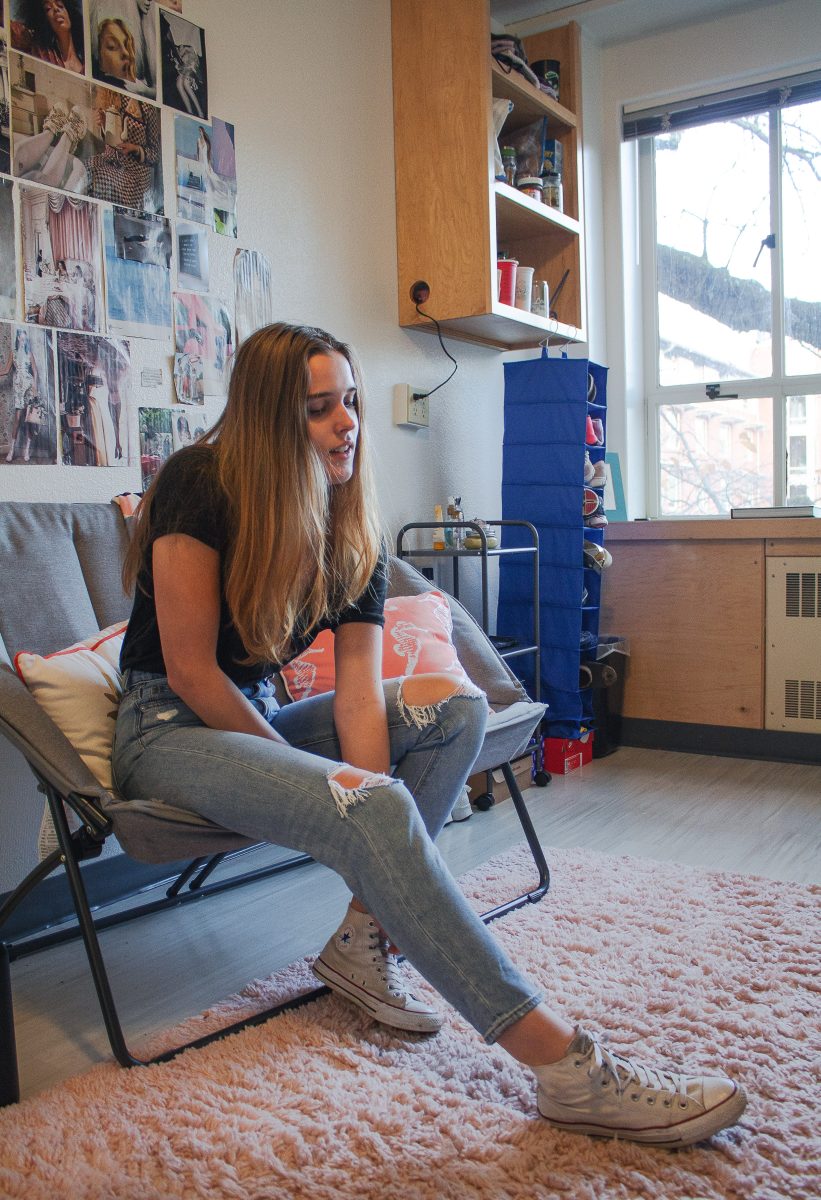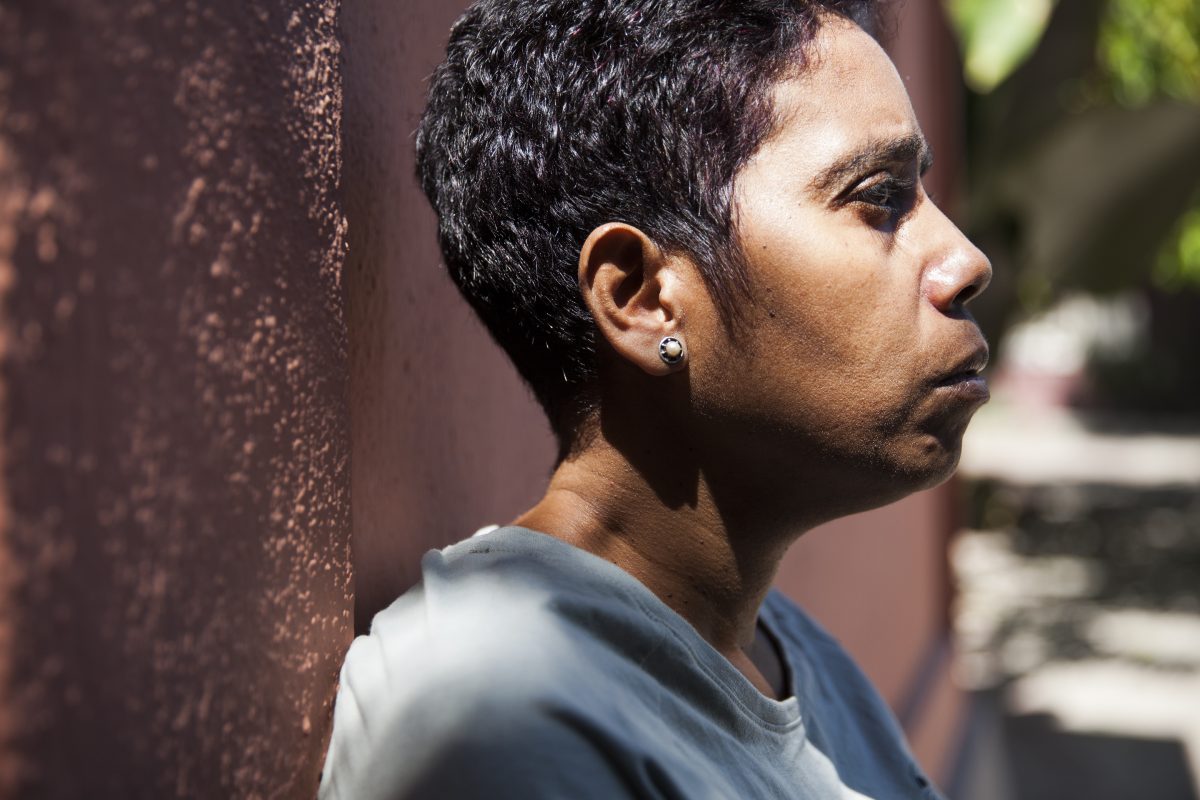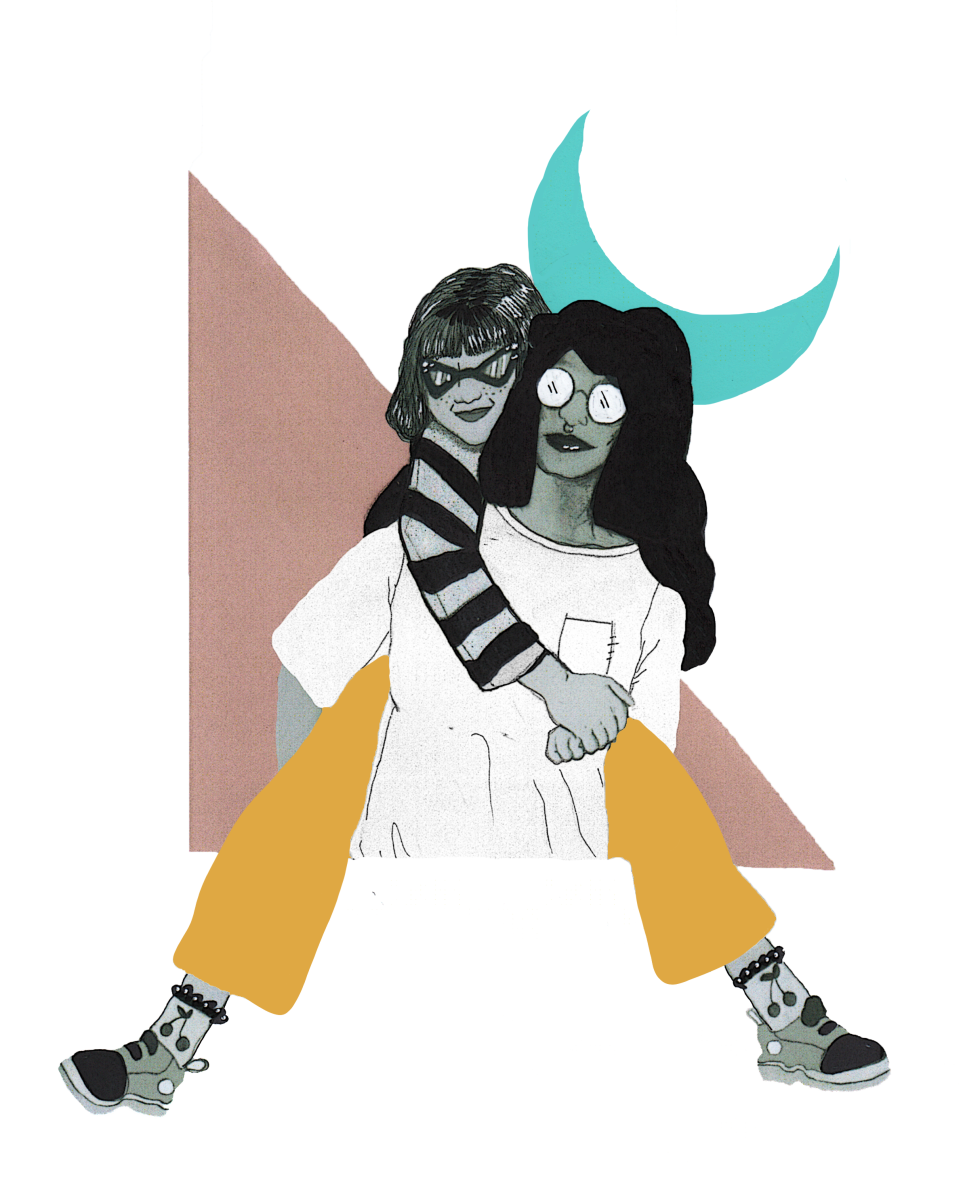CW: Homophobia and sexual assault.
Ever since Jair Bolsonaro was elected president of Brazil in late October 2018, Pedro Oliveira, who asked to remain in anonymity, fears for his life. LGBTQ pins, which once used to be on his backpack, remain hidden in a drawer. His social circle shrunk. And his feelings of loneliness outweigh his fear of being a gay man in Brazil.
Although fearful of what might happen in the next four years with Bolsonaro as Brazil’s president, Oliveira is no stranger to homophobia. On three instances in the past, he was targeted for his identity and sexuality.
On the first occasion, he was sitting with his now ex-boyfriend in a park when suddenly, a man spat in their direction while passing by with children. The man then told the couple that they should leave.
The second occasion involved him playfully wrestling with a friend in a park in São Paulo. “We weren’t doing anything,” said Oliveira. Multiple attempts at convincing security guards ended up unsuccessful, and they were soon kicked out.
On the last and most recent occasion, a man sexually assaulted Oliveira in an empty subway car when coming back from school. At first, Oliveira’s perpetrator seemed like a “cute older man” to him. “He said it was his first time riding the subway.” However, the friendly man quickly turned into a predator when he touched Oliveira’s groin without his consent. Oliveira was shocked and left the subway car as soon as it reached the next station.
His first instinct was to inform law enforcement, but authorities didn’t believe such an incident could happen with a man. Since then, he feels discouraged on opening up to his family or friends about the story “because no one would believe.”
Although the three episodes transformed Oliveira into being more reclusive, Bolsonaro presents another challenge for him and others’ identity: How will the LGBTQ community be affected by his administration?
Bolsonaro’s presidency already had repercussions directed at the LGBTQ community. On January 2, 2019, a day after Bolsonaro took office, he signed a provisional measure detailing what agenda each ministry should follow. On the human rights ministry, however, the lack of an agenda regarding LGBTQ or gender identity rights sparked outrage within the community.
According to Thiago Amparo, a researcher on the LGBTQ community for the Getúlio Vargas Foundation, a law and business school in São Paulo, the provisional measure violates primary rights stated in Brazil’s Constitution.
“Removing LGBT rights from the national policy of human rights breaks international, regional and national commitments taken by Brazil as well as breaking with one of the fundamentals of the Brazilian republic, which is to promote welfare without prejudice,” he said.
Even before Bolsonaro took office, far-right supporters of the President inflicted several attacks on the LGBTQ community. On October 16, 2018, a transsexual woman was murdered by a group of people who advocated for Bolsonaro. Between the first and second round of elections, over 2.7 million people posted about their experience being attacked in Brazil.
Even before the election period, Brazil was already the deadliest country for the LGBTQ community. In 2017, there were over 445 LGBTQ individuals murdered, with a 30 percent increase from 2016 to 2017, according to the Bahia Gay Group, an organization that collects data on LGBTQ crimes in Brazil. In 2018, the same group claimed in a study that every 19 hours, a LGBTQ person is either murdered or commits suicide.
But even violence against the LGBTQ community is part of a broader framework of terror occurring in Brazil.
The Bolsonaro phenomenon is a symptomatic response to government corruption, public safety crisis and economic recession, which many Brazilians blame on the former administrations. The Workers’ Party (PT), which was in power from 2002 until 2016, brought Brazil many social reforms for the millions of people in poverty but was also marked by “Lava Jato” (or “car wash”), the biggest corruption scandal in Brazilian history. Prosecutors lead investigations finding PT as the main culprit in the corruption scandal, and that coincided with the economic recession during Dilma Rousseff’s government. She was later impeached, and the levels of violence rose. According to the Brazilian Forum of Public Safety in 2018, 175 people die every day in Brazil.
Assassinations are a common type of violence in the country. In 2018, 63,808 people were killed, and around 50 million adults know at least one person who was murdered, according to the Brazilian Forum of Public Safety (FBSP.) What makes Brazilians even more fearful and frustrated is that justice is hardly ever served. According to the United Nations, less than 20 percent of the murders are solved and 90 percent of murderers escape conviction.
For the entrepreneur Fernanda Freire, violence sits right around the corner. Her neighbor got mugged in front of his house, and the incident made her wary of even going out for a few drinks on the weekend with her family. Still, she was scared for the results of the second round of elections.
Bolsonaro was competing against Fernando Haddad, the PT candidate. However, due to increased violence during the economic recession, Freire still felt afraid if Haddad won the presidential election.
“If PT wins the election, I will buy a handgun,” said Freire before finding out Bolsonaro was the new president-elect.
But as results would later show, Bolsonaro would win the election with 55.7 percent of the votes and become, for minorities, a threat to their rights. For others, however, Bolsonaro represents hope for a safer and less corrupt country. Both Freire and Sandro Rocha, a pastor who voted for Bolsonaro, would describe the President as a savior who would steer Brazil away from a dark hole of violence, economic crisis and loss of family values to make Brazil’s skies “indigo blue again.”
In order to address the issue of public safety, Bolsonaro gloated that he would legalize the use of handguns and celebrating police officers who kill people in the Favelas, Brazilian slums, regardless of the deceased person’s innocence. His rhetoric of violence worked with many people, as results later revealed, but allowed people to use it as an excuse for more violence, especially against the LGBTQ community.
Bolsonaro supporters created a game called “Bolsonaro 2k18,” in which the president-elect would physically attack women, homosexuals and black people. Although Bolsonaro never attacked anyone, his supporters did. One of the victims is Guilherme Souza.
Souza was traveling in the Brazilian Northeast with his boyfriend when they were stopped by a car in the street. The man inside made Souza and his boyfriend scared by saying, “Bolsonaro is coming.”
“Our trip changed a 100 percent,” said Souza.
Both became overflowed with fear and shock. They weren’t holding hands or doing something romantic, which would suggest homosexuality. The strategy is common for homosexual couples in Brazil in order to protect themselves from homophobic attacks.
In the case of an attack against the LGBTQ community, whether during the elections or in general, justice rarely wins. According to Amparo, the LGBTQ community remains a vulnerable target due to the limited legal resources tied to a lack of constitutional rights. But for him, the elections were an especially inflamed period. Bolsonaro’s rhetoric encouraged “authorization for these kinds of attacks,” said Amparo. “Throughout this election period, there was a huge propagation of hate speech, especially on social media, which was also hooded by the president-elect.”
Social media acted as an effective campaign tool for Bolsonaro. He claimed his campaign was the cheapest in Brazilian history, but his efforts and communications were centered on Twitter and Facebook, especially after he was stabbed during a rally in early September. Claiming an injured state weeks after the stabbing attack, Bolsonaro stopped going to televised debates. Although it’s protocol for any presidential candidate to stop attending televised debates near the election, Bolsnaro’s claim coincided with the incident and propelled his strategy of speaking unmediated to audience members. In Brazil, with a population over 209 million, over 125 million individuals use Facebook daily. His advantage of connecting with the people over social media draws parallels to President Donald Trump’s rhetoric on Twitter. Freire claims the opposition’s buzz “helped Bolsonaro grow by sharing news about him. It was free publicity.”
At the same time, social media was also heavily used by his opposition and minorities to expose targeted attacks during the elections, for example, the Instagram page “Ele Não Vai Nos Matar” (or He’s Not Going to Kill Us.) The stylist Felipe Lago shared his story of an attack during a lunch break and became one of the 2.7 million people who shared their experience on social media.
While walking to a restaurant, a group of three men followed Lago while praising Bolsonaro. One of the men then said, “that right in front of us will end because Bolsonaro will kill faggots,” according to Lago.
Lago’s first instinct was to go inside a random restaurant near him until he eventually pulled out his phone. “I was scared and posted on Facebook,” he said. “Then a lot of friends of mine said they had experienced similar things.”
With what he saw online, Lago says he created a form of resistance with the Instagram page. He published stories from different people all over the country who had similar experiences and still does despite Bolsnaro’s election victory. The page now has over 103,000 followers. The publications drew attention, prompting Bolsonaro to comment about the page. A Brazilian news website, UOL, reported him publicly apologizing and pleading how he possesses no “control over millions and millions of people that support me. It’s a fierce environment, but they’re isolated cases that we’re sorry about and hope they don’t happen.”
For victims, however, his speech wasn’t enough for ending the one-sided violence. Nor did he offer solutions, such as institutional aid for this specific population that has little access to justice, according to Amparo.
Because LGBTQ phobia does not violate any laws in Brazil, it’s hard to make legal cases to the judiciary. The Constitution, however, states public welfare regardless of age, race, sex and “any other forms of discrimination” is an inviolable right. That said, more than a decade ago the proposed legislation criminalizing homophobia was archived for pending in Congress for more than eight years.
Due to the murkiness in legislation regarding intolerance, impunity is often the case. Simultaneously, according to Amparo, local law enforcement is unprepared to handle these situations. Although Brazil’s biggest cities, such as Rio de Janeiro and São Paulo, contain specialized bureaus to deal with human rights violations, “LGBTQ phobia is often the appendix,” he said.
Despite 2.7 million posts on social media about people in the community exposing their homophobic-attack experiences, definite data on the attacks remains unaccounted for, according to Amparo. An independent news website, Apublica, reported on 50 attacks in 10 days in Brazil, but the researcher says this number could be higher. Still, there is no telling how these accurate statistics look like.
“The lack of institutional mechanisms and a database comes from the fact that there is no federal legislation for that,” said Amparo.
Going to the police for institutional support was never a choice for Souza or Lago after each of their incidents. Oliveira eventually sought the police after the assault but was met with a brick wall.
Besides the inefficiency, another factor hindering Souza’s decision of informing police pertains to the officers’ own political bias. Since Bolsonaro promised to invest in law enforcement on the campaign trail, police are usually on his side. It’s still a duty for police to serve the needs of the public, according to Amparo, and offer institutional support aside from previously implemented projects, such as Homophobia Watchdog. Created by the General Attorney’s office, the Homophobia Watchdog is an online service for people who have been attacked to access justice.
Because of sensitive political and social circumstances, some LGBTQ community members assist each other, either in legal or psychological support.
For this reason, Gabriel Mantelli co-created Acode, a non-profit that offers pro-bono services for LGBTQ individuals across the country who have been victims of LGBTQ phobic attacks.
What’s problematic for Acode is the weak rule of law in Brazil, especially towards minorities. Still, Mantelli sees this field as a work that needs to be done. Although challenging, Acode assisted 45 victims from all over the country in a span of three weeks, according to Mantelli.
Besides the non-profit work, Mantelli is also a researcher for the Getúlio Vargas Foundation. He correlates the rise of politically targeted violence as a result of Bolsonaro’s extreme rhetoric against minorities.
“The danger that we see happens from the ascension of intolerance and its symbolic legitimization through Congress – we just elected a really conservative Congress – as well as through the executive power with Bolsonaro,” said Mantelli. “It’s not morally bad anymore to assault an LGBTQ.”
In Mantelli’s eyes, if approved by Congress, the provisional measure removing LGBTQ rights from the government’s agenda symbolizes a manifestation of what the next four years will bring for the community. “It’s very symptomatic and really worrying that the LGBT issue stops being explicit in the government; stops being explicit in Brazil’s federal structure,” he said.
According to Mantelli, Bolsonaro’s rhetoric permitted the LGBTQ phobia attacks in the first place. Yet, Bolsonaro himself suffered the consequences for his hate speech in the past. A contestant sued him for moral damages during a TV show in 2011, forcing him to compensate the equivalent to $37,500 to the Fund for the Defense of Diffuse Rights. During the show, Bolsonaro said his sons would not be gay because all four had a present father figure and access to quality education. He also refused to participate in an annual gay parade held in São Paulo because he believes in God and the preservation of family values. In 2011, Bolsonaro said in an interview to Playboy that “I would be incapable of loving a homosexual son. I’m not going to be a hypocrite: I would prefer that a son of mine die in an accident than coming around with a bearded man.” He did not suffer legal consequences for the interview.
Still, according to Oliveira, most of Bolsonaro’s supporters don’t hold LGBTQ phobic thoughts or ideas. Otherwise, he would consider not leaving his home.
Both Freire and Rocha, who voted for Bolsonaro, said they have nothing personal against the LGBTQ community, and rather feel empathetic for their struggles.
“The LGBT [community] is increasingly worse, is suffering even more,” Freire said. When asked if the social condition improved with PT’s reforms, she said that “the social disparity is very imminent, people are miserable, so I don’t know what got better.”
Rocha, who works within his church to help vulnerable LGBTQ people, said that Bolsonaro supporters who attack LGBTQ people are “idiots who exist everywhere.” According to him, the attacks are not isolated, since members of the LGBTQ community “have always been, and are and always will be murdered violently due to the life they have and where and how they live.”
Rather, the extremism and intolerance in speeches like Bolsonaro’s demonstrate the propensity to socially accept authoritarian policies. According to Datafolha in 2017, approximately 80 percent of the population is open to authoritarian positions. This number varies according to different regions, but critics argue that it is due to the low levels of scholarship and grim socioeconomic conditions in a country where over 50 million people fall under the poverty line.
Yet, having 80 percent of the population embracing authoritarianism does not mean that the Brazilian society stands resolute and united. Instead, political polarization is a recurring theme that existed before Brazil’s military coup in 1964, and persists today – a country divided in left and right.
Polarization became an advantage for Bolsonaro’s campaign. During the campaign, Bolsonaro stated that the people who were against him should leave Brazil. On the last day before the second round of elections, however, he published a video on social media urging unity for the country.
For Oliveira, however, polarization runs deep into social relations, meaning it’s not a symptom that can be easily remedied. His godmother, who always supported his identity, voted for Bolsonaro, thus making Oliveira feel betrayed. With everything that Bolsonaro had said about the LGBTQ community, he couldn’t understand how an ally could vote for the new President.
Besides his godmother, Oliveira’s ex-boyfriend also voted for Bolsonaro. For him, the decision to support a candidate as homophobic as Bolsonaro is a direct attempt against his own life.
“That hurt me a lot,” he said. “Not voting for him is basic for supporting someone in the LGBTQ community.”
Due to the increase in politically targeted attacks, the LGBTQ community in Brazil is scared, according to Amparo. Because the actual number of attacks is murky due to institutional inefficiency, bad communication with authorities and the lack of a database, the size of the problem is still unclear.
Souza, for example, has been considering leaving the country with his boyfriend if things get worse in Brazil.
But in a country where most of the population does not have the resources to leave, Acode and “Ele Não Vai Nos Matar” are on the frontline to offer protection and to expose attacks that are happening all over Brazil.
The LGBTQ community is especially fragile in rural areas which compose most of the fifth largest country in the world. In those areas, conservatism especially thrives due to the lack of scholarship and poor socioeconomic conditions.
Still, even in the largest city in Latin America, Oliveira feels lonely. People whom he could once trust are no longer part of his list of friends and allies because they voted for Bolsonaro, a president sued for his homophobic rhetoric.
While many people, like Rocha, who voted for Bolsonaro sees him as Moses, the leader who will free the oppressed and the scared from the years of PT’s government to a more united and developed Brazil, Oliveira sees him as a threat. “I really hope he doesn’t do what he says he is going to do,” he said.
After being a victim of three attacks, and having his close friends and family show their support for Bolsonaro, Oliveira fears what might happen in the next four years. For him, there’s no telling what the future looks like.











![[Photo Courtesy of the Lara Family]
Ruben embraces his beloved childhood goat, Katrina.](https://ethos.dailyemerald.com/wp-content/uploads/2025/05/katrina-1-1060x1200.jpg)


